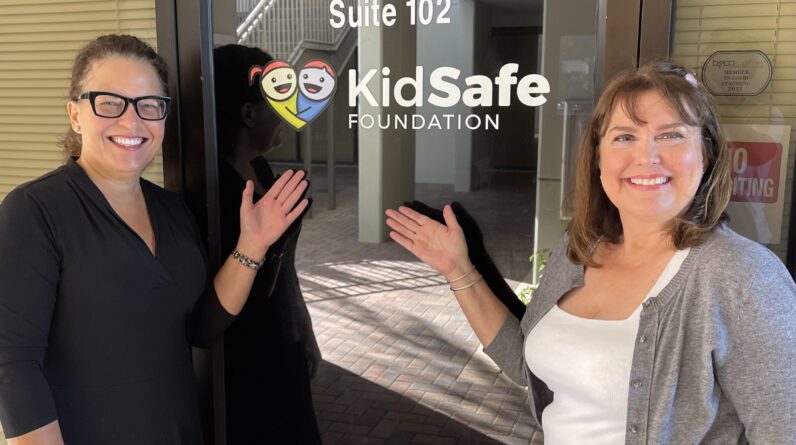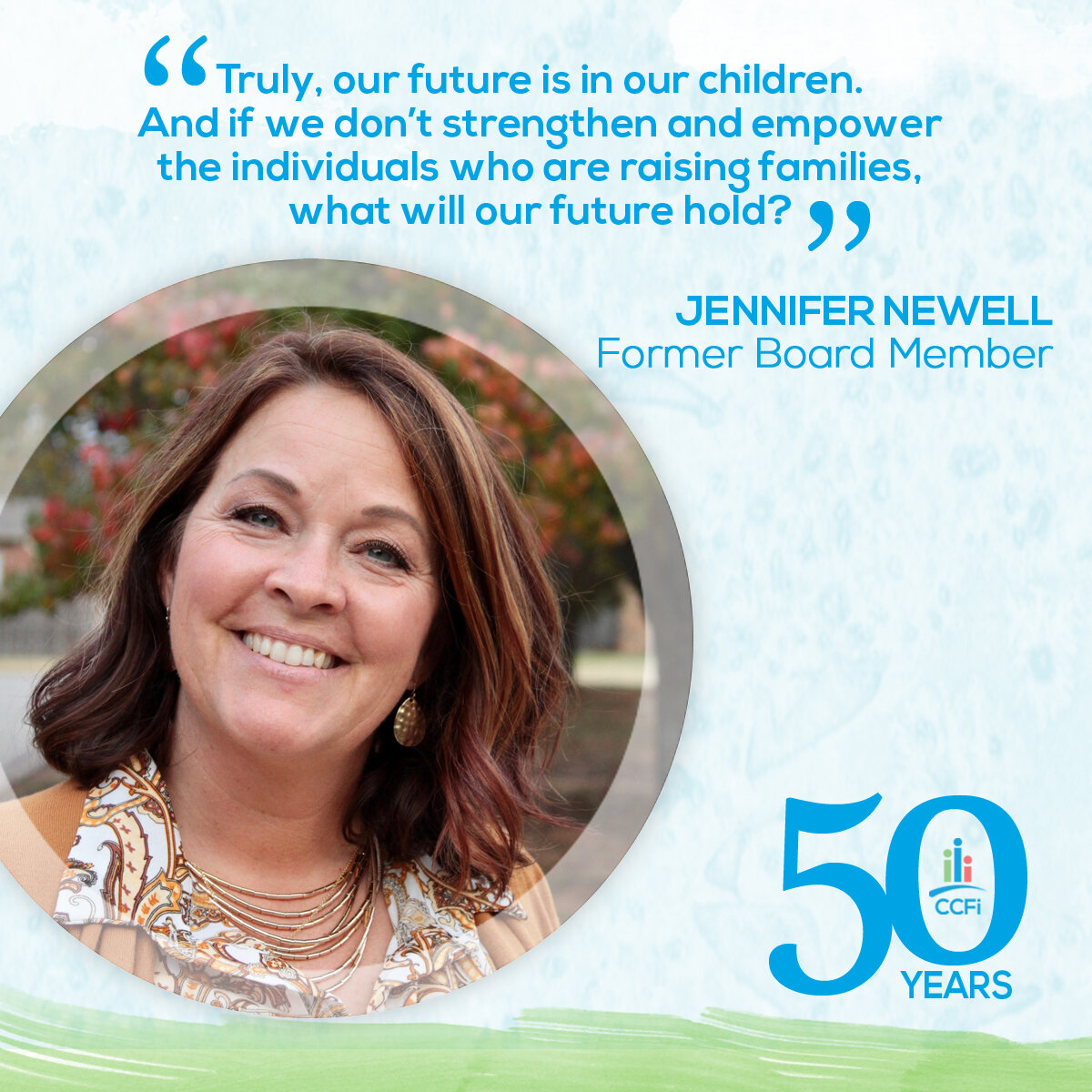
January is recognized as International Child-Centered Divorce Month to support families in navigating the divorce process with a focus on the well-being of children. Divorce can be a challenging and emotional experience, especially when children are involved.
Acknowledging the impact of divorce on children, January has been designated as International Child-Centered Divorce Month. During this time, families are encouraged to prioritize the well-being and needs of the children as they navigate the process of divorce. This initiative aims to provide parents with resources, support, and guidance, helping them create a healthy and positive environment for their children during and after divorce.
Promoting a child-centered approach, this month serves as a reminder to put children’s emotional, physical, and mental well-being at the forefront of the divorce process, ensuring a smoother transition and long-term stability for the whole family.

Credit: www.ccfinorman.org
The Importance Of Child-centered Divorce
Divorce can have a profound impact on children, and it is essential to focus on their well-being during this challenging time. International Child-Centered Divorce Month aims to raise awareness about the needs of children in divorce situations.
One of the crucial aspects is recognizing the impact that divorce can have on children. Acknowledging and addressing their emotions, fears, and concerns is vital. Shifting the focus from parental conflicts to the child’s needs can help minimize the adverse effects of divorce on children. Parents can create a supportive and nurturing environment by prioritizing their emotional and mental well-being.
This approach involves active communication, establishing routines, providing stability, and offering extra support when necessary. By putting the child at the center, both parents can work together to ensure a smooth transition and enable the child to adjust to the changes and thrive in the post-divorce phase.
Creating A Supportive Environment For Children
Promoting open communication and honesty is crucial in helping children navigate a divorce. Encouraging parents to be transparent about changes and inviting children to express their thoughts and feelings can alleviate their anxieties.
Positive co-parenting relationships are vital in minimizing conflicts and maintaining a peaceful atmosphere for the children. When parents collaborate in decision-making and show respect towards each other, children feel more secure and supported.
Moreover, establishing consistent routines and boundaries provides stability during this challenging time. Predictable schedules for visits and activities help children adjust to their new normal. Boundaries and rules should be clear and consistent between parents’ households, ensuring children understand expectations and experience consistency regardless of where they are. This fosters a sense of security and reduces confusion.
| Promoting open communication and honesty | Encouraging positive co-parenting relationships | Establishing consistent routines and boundaries |
|---|---|---|
| Promote openness and honesty to alleviate anxieties. | Collaborate in decision-making and show respect towards each other. | Establish predictable schedules and clear, consistent boundaries. |
| Invite children to express their thoughts and feelings. | Minimize conflicts and create a peaceful atmosphere. | Provide stability and a sense of security. |
| Foster a cooperative and supportive co-parenting dynamic. | Reduce confusion and help children adjust to new routines. |
Nurturing Emotional Well-being During And After Divorce
Emotional well-being holds immense importance for children during and after a divorce. The process of divorce can be overwhelming and challenging for children as they struggle to navigate their emotions. Providing access to counseling and support groups can significantly assist children in understanding and dealing with their feelings. These resources offer a safe space where children can express their emotions, gain insights, and receive guidance on coping mechanisms.
Fostering resilience and adaptability skills is crucial for children going through a divorce. Helping them develop these skills enables them to bounce back from difficulties and adapt to new circumstances. Parents can encourage resilience by promoting a positive outlook, emphasizing problem-solving abilities, and teaching practical communication skills.
| Ways to Nurture Emotional Well-being during and after Divorce |
|---|
| Provide access to counseling and support groups |
| Foster resilience and adaptability skills |
Focusing on nurturing emotional well-being during and after divorce helps children develop the necessary skills to cope with change and build a strong foundation for their future.
Building Strong Parent-child Relationships
International Child-Centered Divorce Month celebrates the importance of building solid parent-child relationships during and after a divorce. Understanding children’s developmental needs is critical to creating a nurturing environment for them to thrive.
Quality time and bonding activities are crucial in maintaining a healthy connection with children. Sharing activities promoting positive interactions and emotional ties can help children feel secure and loved.
Additionally, it is essential to support children’s interests and aspirations. Encouraging their hobbies and passions provides a sense of identity and accomplishment and fosters self-esteem and confidence. Parents can show unwavering support by being actively involved in their pursuits, leading to stronger parent-child ties.
Legal And Financial Considerations For Child-centered Divorce
International Child-Centered Divorce Month is a necessary time to consider the legal and financial aspects of a child-centered divorce. When it comes to child custody and visitation options, it is crucial to explore the various possibilities that will best prioritize the child’s well-being. This may involve discussing joint custody arrangements and visitation schedules and ensuring the child’s needs and preferences are considered.
Collaborating on financial support arrangements is another essential consideration in a child-centered divorce. Establishing clear expectations for both parents regarding child support and financial responsibilities is vital. This may include determining the amount of financial support needed, creating a payment plan, and addressing any additional financial considerations that arise throughout the divorce process.
Seeking professional guidance for legal matters is highly recommended during a child-centered divorce. Consulting with a qualified family lawyer specializing in divorce and child custody cases can provide valuable advice and representation. They can help navigate the legal complexities, protect the rights of both parents and ensure that the child’s best interests are upheld throughout the divorce proceedings.
Co-parenting Successfully For The Sake Of The Children
Effective communication strategies are crucial to co-parenting for the sake of the children. By employing these strategies, parents can ensure that conflict is resolved child-centered and that decisions are made as a united front.
Firstly, open and honest communication is essential. Both parents should be able to express their thoughts and feelings without fear of judgment or confrontation. Listening to one another and maintaining a calm and respectful tone can help prevent misunderstandings and diffuse potential conflicts.
Secondly, finding common ground is essential for making decisions in the children’s best interest. This involves focusing on shared goals and values and making compromises when necessary. Parents can work together to create a nurturing environment by prioritizing the children’s well-being over personal differences.
Lastly, establishing clear boundaries and expectations can help maintain healthy co-parenting dynamics. This includes defining roles and responsibilities and consistently communicating and enforcing agreed-upon rules. A structured and predictable routine can provide stability and security for the children.
Exploring Resources And Programs For Child-centered Divorce
International Child-Centered Divorce Month is a necessary time to focus on resources and programs that prioritize the well-being of children during divorce. Researching local support services and organizations can provide valuable information and support for families going through this challenging time. These services can connect parents and children with professionals specializing in child-centered divorce and offer guidance, counseling, and mediation.
Participating in workshops and seminars is another way to gain knowledge and skills for navigating a child-centered divorce. These events often cover topics such as effective communication, co-parenting strategies, and understanding the emotional needs of children during the divorce process.
In addition to local resources, many online platforms offer educational materials and resources for child-centered divorce. These resources may include articles, e-books, podcasts, videos, and online support groups. They can provide guidance and support for parents and help them make informed decisions that are in the best interest of their children.
By exploring and utilizing these resources and programs, parents can ensure that their children’s well-being remains at the center of the divorce process.
The Long-term Benefits Of Child-centered Divorce
Divorce can be a challenging and emotional process, mainly when children are involved. However, child-centered divorce can help mitigate the adverse effects on children and promote healthy relationships and future well-being.
By focusing on the needs of the children, child-centered divorce aims to create a supportive and nurturing environment during and after the divorce. This approach recognizes that children require stability, consistency, and positive parental involvement to thrive.
Promoting healthy relationships is a crucial aspect of child-centered divorce. Parents are encouraged to communicate effectively and collaborate in decision-making regarding the children’s welfare. Co-parenting workshops and counseling sessions can provide parents with the tools and strategies to establish a cooperative relationship, enhancing the child’s overall well-being.
Furthermore, child-centered divorce empowers families for a brighter future. It encourages parents to prioritize their children’s emotional and psychological needs, facilitating open dialogue and addressing concerns constructively. Children can better navigate the challenging transition and adapt to their new family dynamics by fostering a sense of security and stability.
In conclusion, child-centered divorce offers numerous long-term benefits for children. Child-centered divorce helps create a solid foundation for children to flourish in their futures by prioritizing their well-being, promoting healthy relationships, and empowering families.
Dates of International Child-Centered Divorce Month
| Year | Date | Day |
|---|---|---|
| 2024 | January 1 | Monday |
| 2025 | January 1 | Wednesday |
| 2026 | January 1 | Thursday |
| 2027 | January 1 | Friday |
| 2028 | January 1 | Saturday |
Frequently Asked Questions Of International Child-centered Divorce Month
Why Is September Divorce Month?
September is often considered a popular month for divorces due to several factors, such as the end of summer and the start of a new school year. Couples may have spent more time together during vacations and realized they were unhappy.
They may also want to avoid disrupting their children’s school routines.
Will 50% Of All Children In The United States Witness The End Of A Parent’s Marriage?
Approximately 50% of children in the United States may experience the divorce of their parents.
How Likely Are Children Of Divorce To Get Divorced?
Children of divorce are statistically more likely to get divorced themselves. Research shows that they have a higher chance of experiencing marital difficulties in their relationships.
Conclusion
International Child-Centered Divorce Month aims to shed light on the importance of placing children at the center of divorce proceedings. By prioritizing their well-being, we can ensure they have the love, care, and support they need during this challenging time.
This month serves as a reminder to parents and professionals alike to approach divorce with compassion and consideration for the children involved, ultimately leading to healthier and more positive outcomes for all parties involved.





